Filter by

Israel's Exodus in Transdisciplinary Perspective: Text, Archaeology, Culture,…
The Bible's grand narrative about Israel's Exodus from Egypt is central to Biblical religion, Jewish, Christian, and Muslim identity and the formation of the academic disciplines studying the ancient Near East. It has also been a pervasive theme in artistic and popular imagination. Israel's Exodus in Transdisciplinary Perspective is a pioneering work surveying this tradition in unprecedented br…
- Edition
- -
- ISBN/ISSN
- 978-3-319-04768-3
- Collation
- -
- Series Title
- -
- Call Number
- -
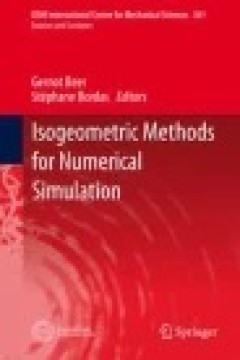
Isogeometric Methods for Numerical Simulation
The book presents the state of the art in isogeometric modeling and shows how the method has advantaged. First an introduction to geometric modeling with NURBS and T-splines is given followed by the implementation into computer software. The implementation in both the FEM and BEM is discussed.
- Edition
- -
- ISBN/ISSN
- 978-3-7091-1843-6
- Collation
- -
- Series Title
- -
- Call Number
- -
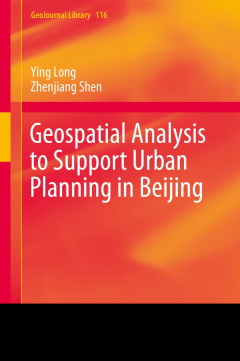
Geospatial Analysis to Support Urban Planning in Beijing
This book describes a comprehensive framework of novel simulation approaches, conventional urban models, and related data mining techniques that will help develop planning support systems in Beijing as well as other mega-metropolitan areas. It investigates the relationships between human behaviors and spatial patterns in order to simulate activities in an urban space, visualize planning alterna…
- Edition
- -
- ISBN/ISSN
- 978-3-319-19341-0
- Collation
- XXV, 272
- Series Title
- -
- Call Number
- 301 LON g
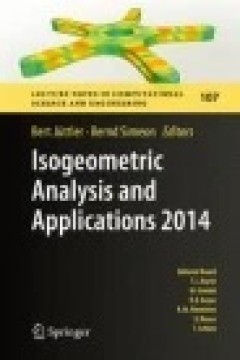
Isogeometric Analysis and Applications 2014
Isogeometric Analysis is a groundbreaking computational approach that promises the possibility of integrating the finite element method into conventional spline-based CAD design tools. It thus bridges the gap between numerical analysis and geometry, and moreover it allows to tackle new cutting edge applications at the frontiers of research in science and engineering. This proceedings volume co…
- Edition
- -
- ISBN/ISSN
- 978-3-319-23315-4
- Collation
- -
- Series Title
- -
- Call Number
- -
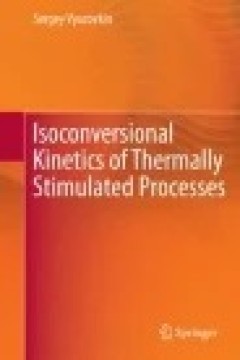
Isoconversional Kinetics of Thermally Stimulated Processes
The use of isoconversional kinetic methods for analysis of thermogravimetric and calorimetric data on thermally stimulated processes is quickly growing in popularity. The purpose of this book is to create the first comprehensive resource on the theory and applications of isoconversional methodology. The book introduces the reader to the kinetics of physical and chemical condensed phase processe…
- Edition
- -
- ISBN/ISSN
- 78-3-319-14175-6
- Collation
- -
- Series Title
- -
- Call Number
- -
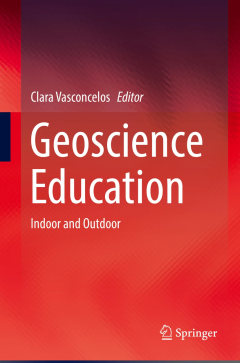
Geoscience Education
This book presents research in Geoscience Education focusing on indoor and outdoor environments in which teaching geoscience gains particular relevance, significance and contextualization. The research areas that are presented throughout the thirteen chapters cover a wide variety of subjects ranging from educational resources and fieldwork to science models. Chapters discuss specific geoscience…
- Edition
- -
- ISBN/ISSN
- 978-3-319-43318-9
- Collation
- -
- Series Title
- -
- Call Number
- 370 GEO
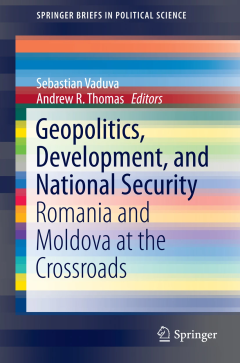
Geopolitics, Development, and National Security
This volume focuses on the spotlight on Romania and Moldova, two distinct nations that share a common language, history and culture. Romania is a NATO member since 2004 and a fully integrated nation into the European Union since 2007, while The Republic of Moldova (a former Soviet republic) is attempting to join both international organizations for security and development reasons. Ever sinc…
- Edition
- -
- ISBN/ISSN
- 978-3-319-12684-5
- Collation
- XI, 118
- Series Title
- -
- Call Number
- 320.12 GEO
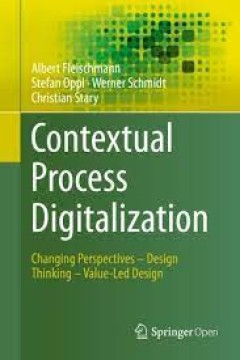
Contextual Process Digitalization : Changing Perspectives – Design Thinking…
This open access book presents an overview and step-by-step explanation of process management. It starts with the individual participants’ perspectives on their work in a process and its structuring and harmonization, and then moves on to its specification in a model and how it is embedded in the organizational and IT environment of the company. Lastly, the book examines the joint processing …
- Edition
- -
- ISBN/ISSN
- 978-3-030-38300-8
- Collation
- X, 275 halaman
- Series Title
- -
- Call Number
- 650 FLE c
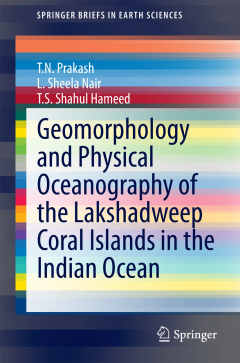
Geomorphology and Physical Oceanography of the Lakshadweep Coral Islands in t…
The Lakshadweep islands are a group of 36 coral islands in the Indian Ocean. These small islands are unique for their aquatic bio-diversity and vast blue lagoons. This book presents the results of studies done by the authors during the period 1990 to 2009 that address the beach morphology, hydrodynamics, energy resources and management options with special reference to the issue of both natural…
- Edition
- -
- ISBN/ISSN
- 978-3-319-12366-0
- Collation
- -
- Series Title
- -
- Call Number
- 551.6 PRA g

Making work more equal : A new labour market segmentation approach
This book is inspired by, and dedicated to, Jill Rubery. Jill is a major figure in international debates on inequalities in work and employment. Her intellectual contributions are renowned for both their critical questioning of mainstream theoretical approaches, whether in economics, management, industrial relations or comparative systems, and their attention to real-world empirical detail. Jil…
- Edition
- -
- ISBN/ISSN
- 9781526125972
- Collation
- -
- Series Title
- -
- Call Number
- 331.12 MAK
 Computer Science, Information & General Works
Computer Science, Information & General Works  Philosophy & Psychology
Philosophy & Psychology  Religion
Religion  Social Sciences
Social Sciences  Language
Language  Pure Science
Pure Science  Applied Sciences
Applied Sciences  Art & Recreation
Art & Recreation  Literature
Literature  History & Geography
History & Geography